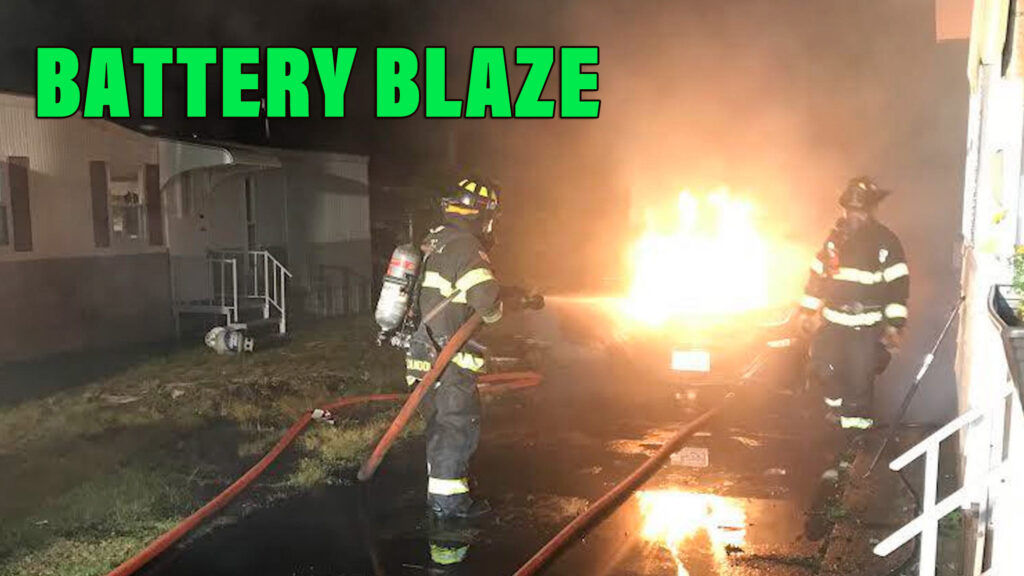Firefighters used 11,000 gallons of water putting out the blaze and said it was fortunate the car was parked outside and not in a garage
August 8, 2023 at 06:22
 –>
–> 
–>
News stories about electric car fires are becoming all too common, and while this latest tale of a Chevy Bolt spontaneously combusting in Massachusetts won’t grab as many headlines as the ship fire in Europe thought to be caused by a burning EV, it could have ended even more tragically because of its proximity to the owner’s house.
But the blaze might not have happened at all if the Bolt had been repaired as part of a recall announced by GM in 2021 when it discovered that some EVs were catching fire due to faulty batteries. The owner of the Bolt in this case told reporters that the car had not been updated. “They had no batteries to give us, so we were waiting,” she said in an interview with WCVB Channel 5 Boston. GM originally announced it would replace the entire battery pack of every Bolt EV built between 2017 and 2022, but changed its stance this year, saying dealers would now only install software to monitor the battery’s condition.
The fact that the car was parked outside gave emergency services good access to it when they were called out around 04.15 am to the house in Great Hill Estates, Wareham. But extinguishing the blaze still turned into a mammoth job. Fire crews managed to put out the initial fire and continued to wet the car down, but the car’s lithium ion battery ignited again 30 minutes later.
advertisement scroll to continue
Related: Next-Gen Chevrolet Bolt Officially Confirmed
[embedded content]
In total, the Wareham Fire Department spent three hours on the scene and used 11,000 gallons (41,600 liters) of water to ensure the Bolt was no longer a fire risk. The team used a special hose attachment that slides along the ground under an EV’s floor and cools the battery from below. The car had apparently already been charged and the owner confirmed that the 2021 Bolt was not plugged in at the time, so the fire seems to have started spontaneously.
Fortunately, there were no injuries, though that’s partly thanks to the Chevy being parked out on the driveway. “If this vehicle had been parked in a garage the results could have been disastrous,” Incident Commander Chief John Kelley said.

 <!–
<!– –>
–> 
